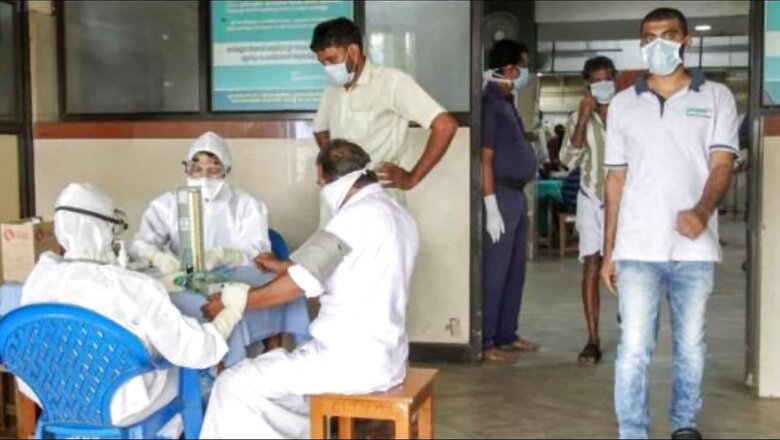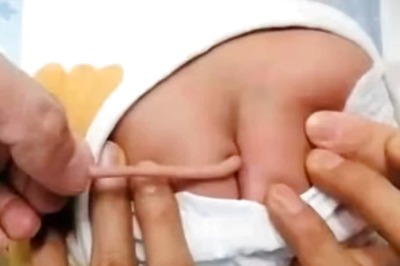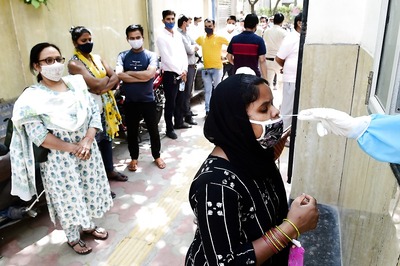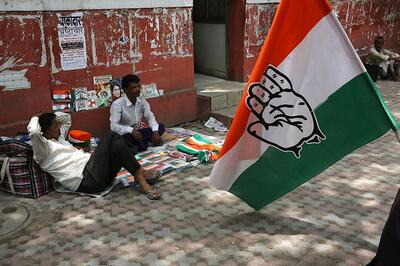
views
It’s a double whammy for Kerala. Even as the southern state was struggling to arrest the spike in Covid-19 cases, the death of a 12-year-old on Sunday due to the Nipah virus has complicated matters for the Pinarayi Vijayan government, which has assured people that there is no need to panic as of now. Speaking to the media, state health minister Veena George said the child died at 5am on Sunday. “Pune NIV has confirmed that the sample was Nipah positive. All primary contacts were identified and are being isolated. There is a special team already in place,” she added. The first Nipah virus disease (NiV) outbreak in South India was reported in the Kozhikode district of Kerala on May 19, 2018. The state had witnessed 17 deaths and 18 confirmed cases till June 1, 2018. Nipah reappeared in 2019, this time in Ernakulam district. However, the infection was contained to just the lone index case, who survived the infection.
As the virus threatens to destabilise the already-burdened health infrastructure of the state, News18 takes a look at Nipah:
What is the Nipah Virus?
The Nipah virus is a zoonotic disease that is naturally transmitted from vertebrate animals to humans, while human-to-human transmission has also been documented. First identified among pig farmers in Malaysia, the disease also surfaced in Siliguri, West Bengal, in 2001 and again in 2007. Historically, the virus had largely remained in a cluster, meaning it was mostly confined to an area, and affected those that came in close contact to the patients, the experts said.
How does it spread?
Nipah virus can be transmitted by infected pigs, or by fruit bats, through their secretions of saliva, urine or faeces. The other mode of transmission is human to human, through body secretions and respiratory secretions. In outbreaks in Bangladesh and India, “consumption of fruits or fruit products (such as raw date palm juice) contaminated with urine or saliva from infected fruit bats was the most likely source of infection”, according to the WHO.
Must cases of human-to-human transmission of Nipah were reported among family and caregivers of infected persons and people coming into contact with patients’ bodily fluids and excretions.
What are symptoms of Nipah?
The WHO notes “Infected people initially develop symptoms including fever, headaches, myalgia (muscle pain), vomiting and sore throat. This can be followed by dizziness, drowsiness, altered consciousness and neurological signs that indicate acute encephalitis. Some people can also experience atypical pneumonia and severe respiratory problems, including acute respiratory distress. Encephalitis and seizures occur in severe cases, progressing to coma within 24 to 48 hours.”
The incubation period of Nipah virus (interval between infection to onset of symptoms) is typically from four to 14 days. However, the WHO claims an incubation period of up to 45 days has also been reported.
Is there any drug or vaccine?
According to the WHO, “There are currently no drugs or vaccines specific for Nipah virus infection… Intensive supportive care is recommended to treat severe respiratory and neurologic complications.”
So how can it be prevented?
The WHO advises, “If an outbreak is suspected, the animal premises should be quarantined immediately. Culling of infected animals—with close supervision of burial or incineration of carcasses—may be necessary to reduce the risk of transmission to people. Restricting or banning the movement of animals from infected farms to other areas can reduce the spread of the disease.”
The National Centre for Disease Control recommends people to wash hands with soap and water after coming in contact with a sick person or animal, avoid consuming raw date palm sap or toddy, consume only washed fruits, avoid consuming half-eaten fruits from the ground, avoid entering into abandoned wells and handle dead bodies in accordance with the government advisory.
Read all the Latest News, Breaking News and Assembly Elections Live Updates here.




















Comments
0 comment